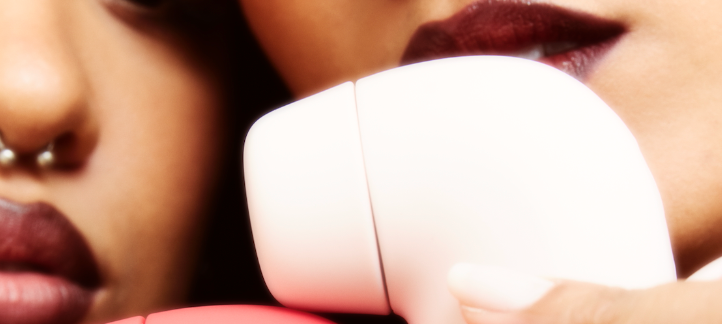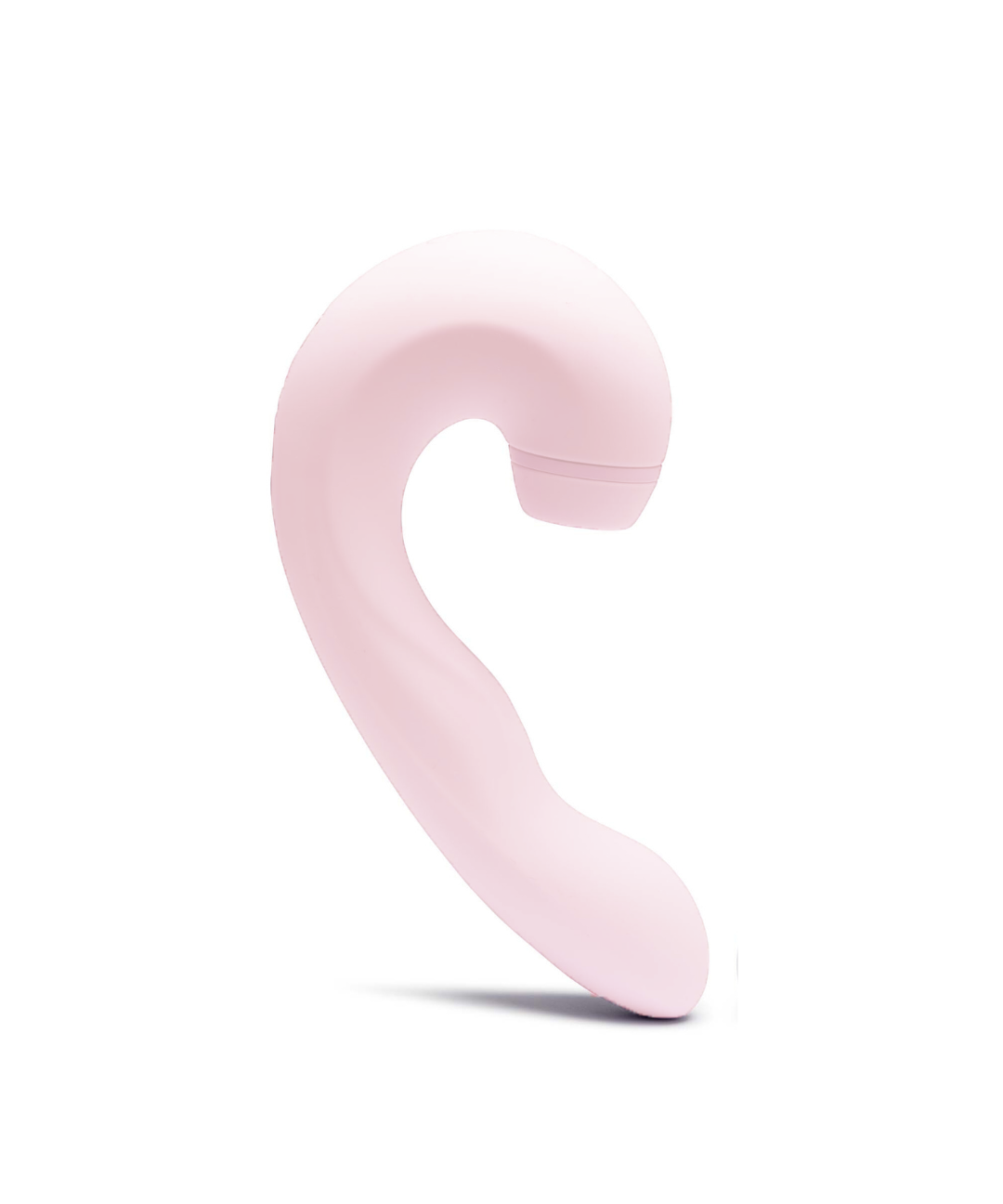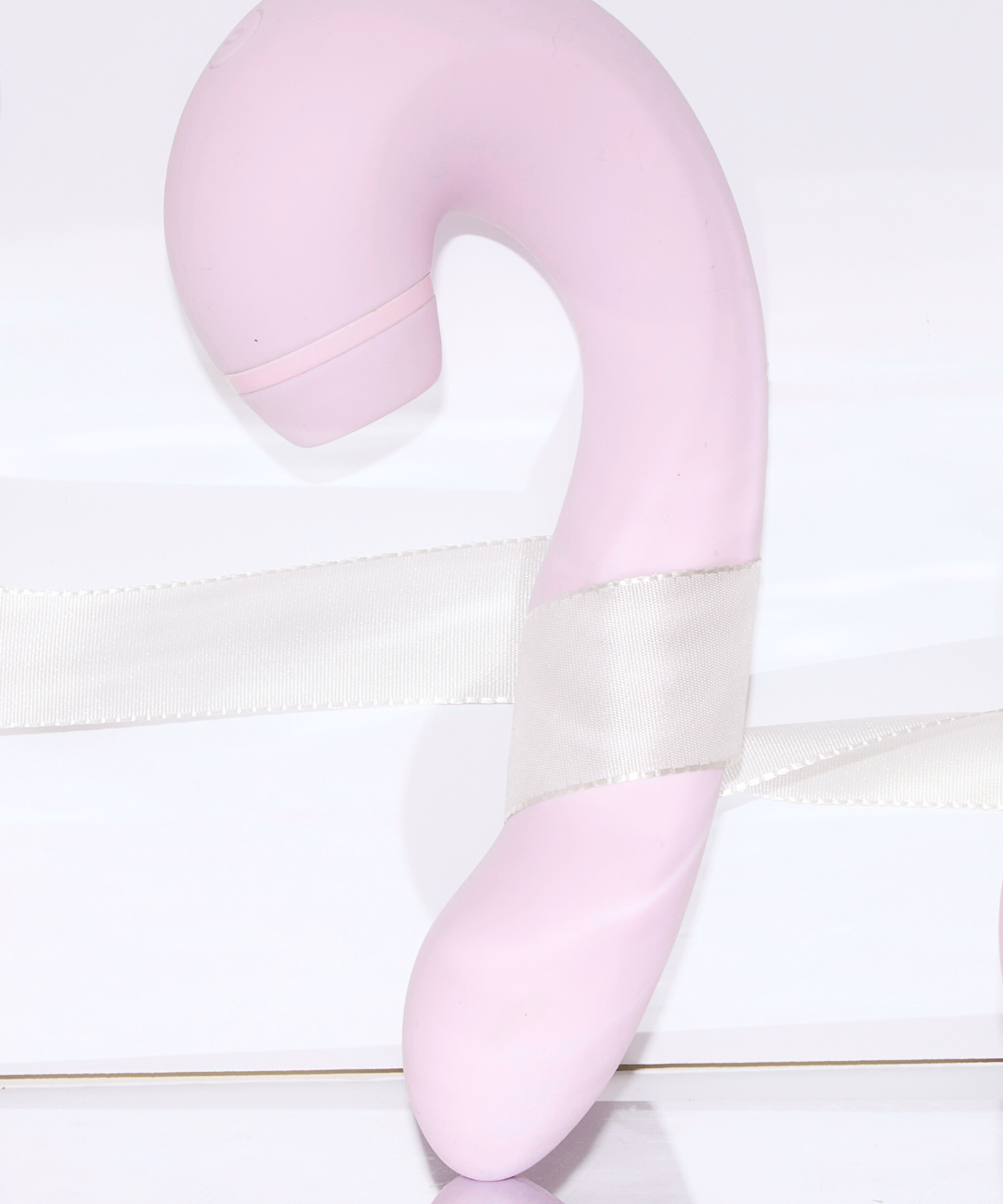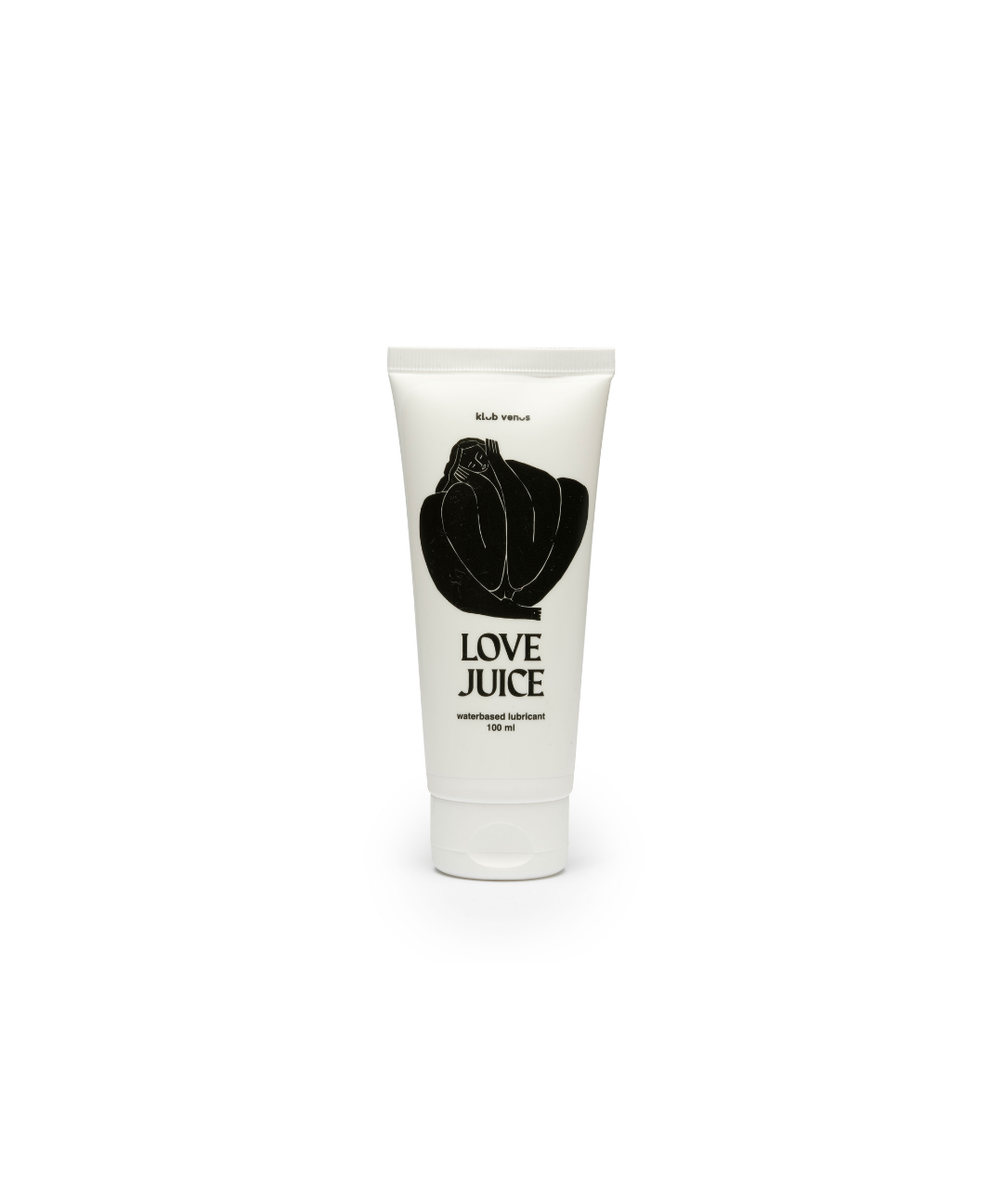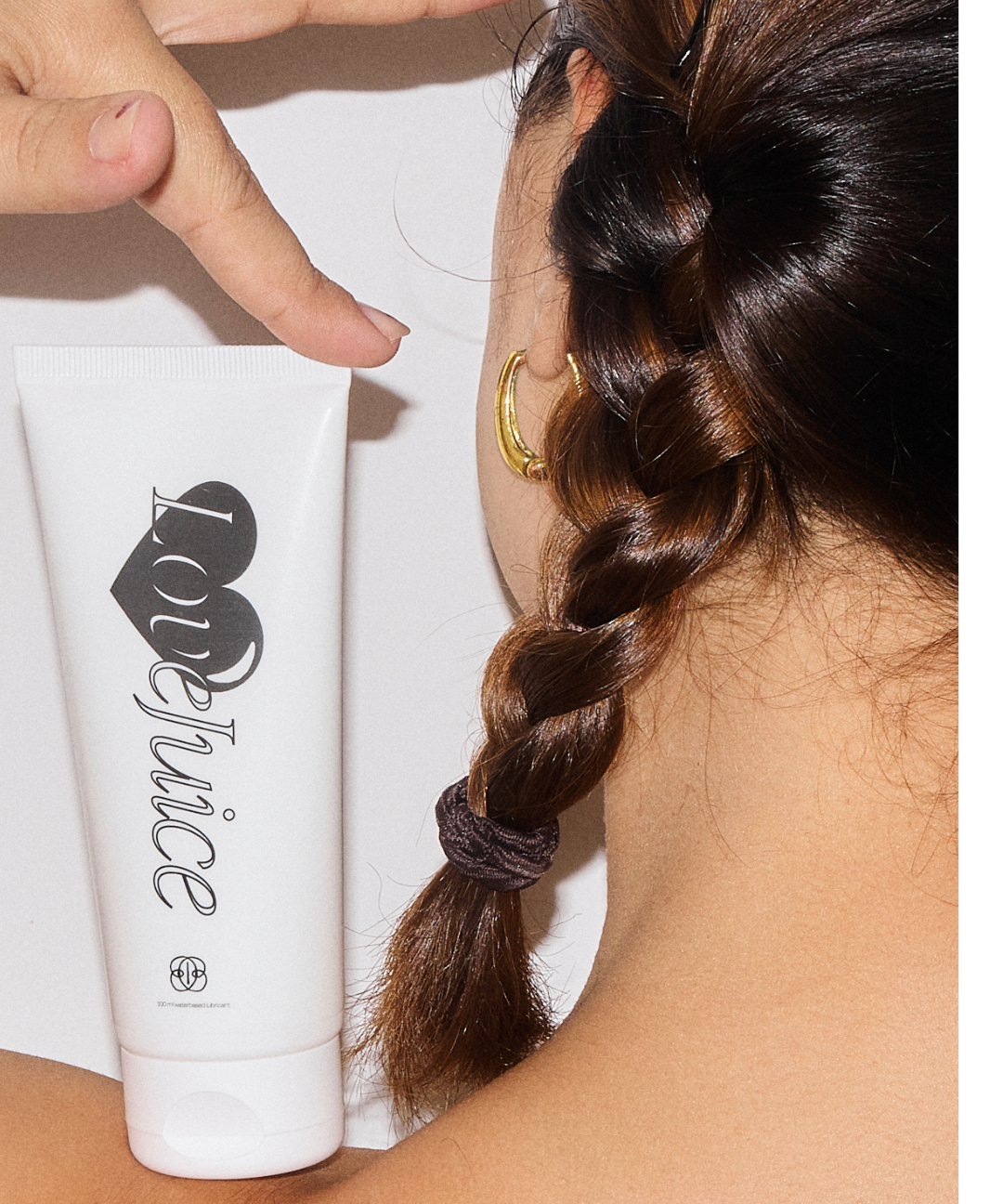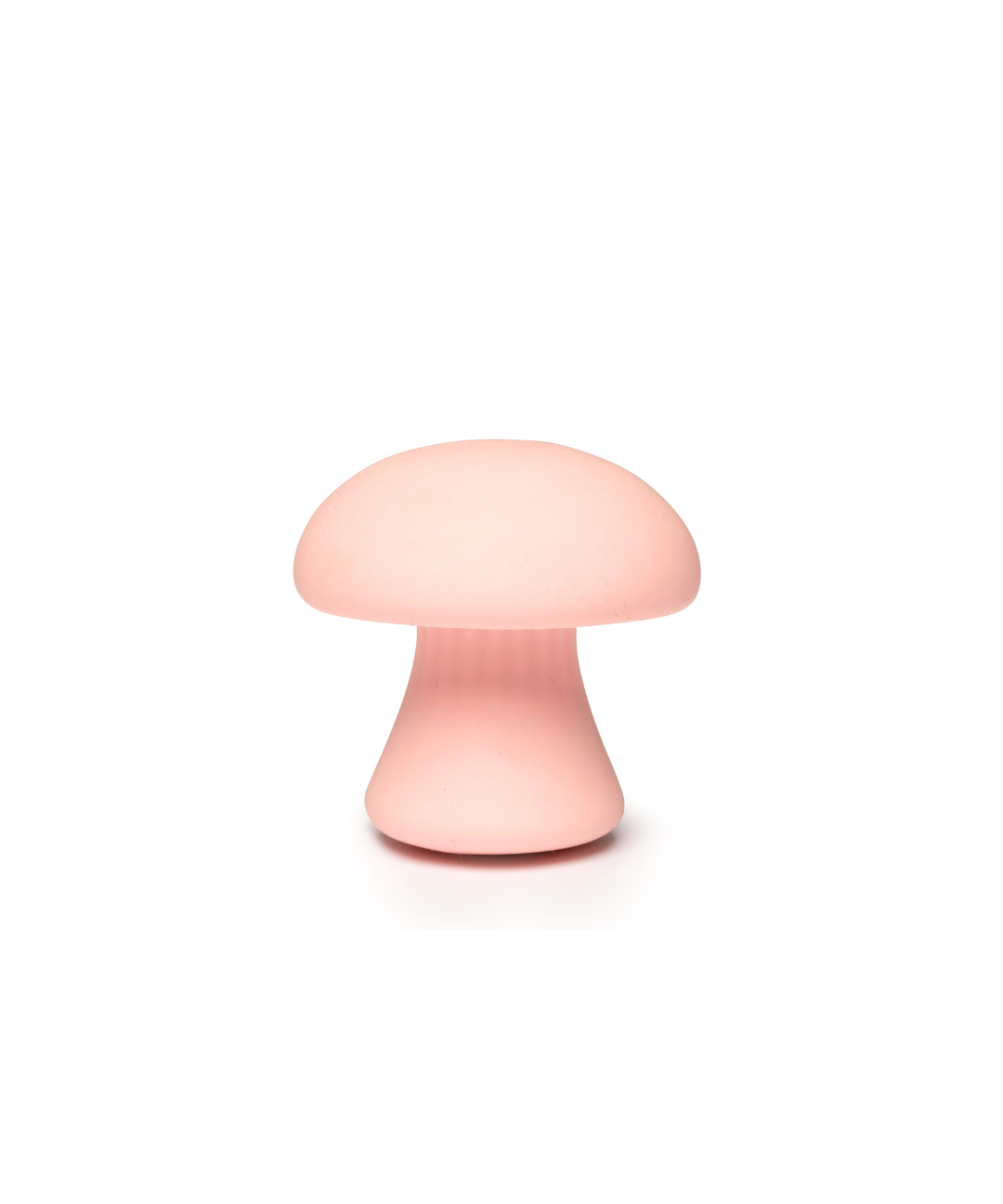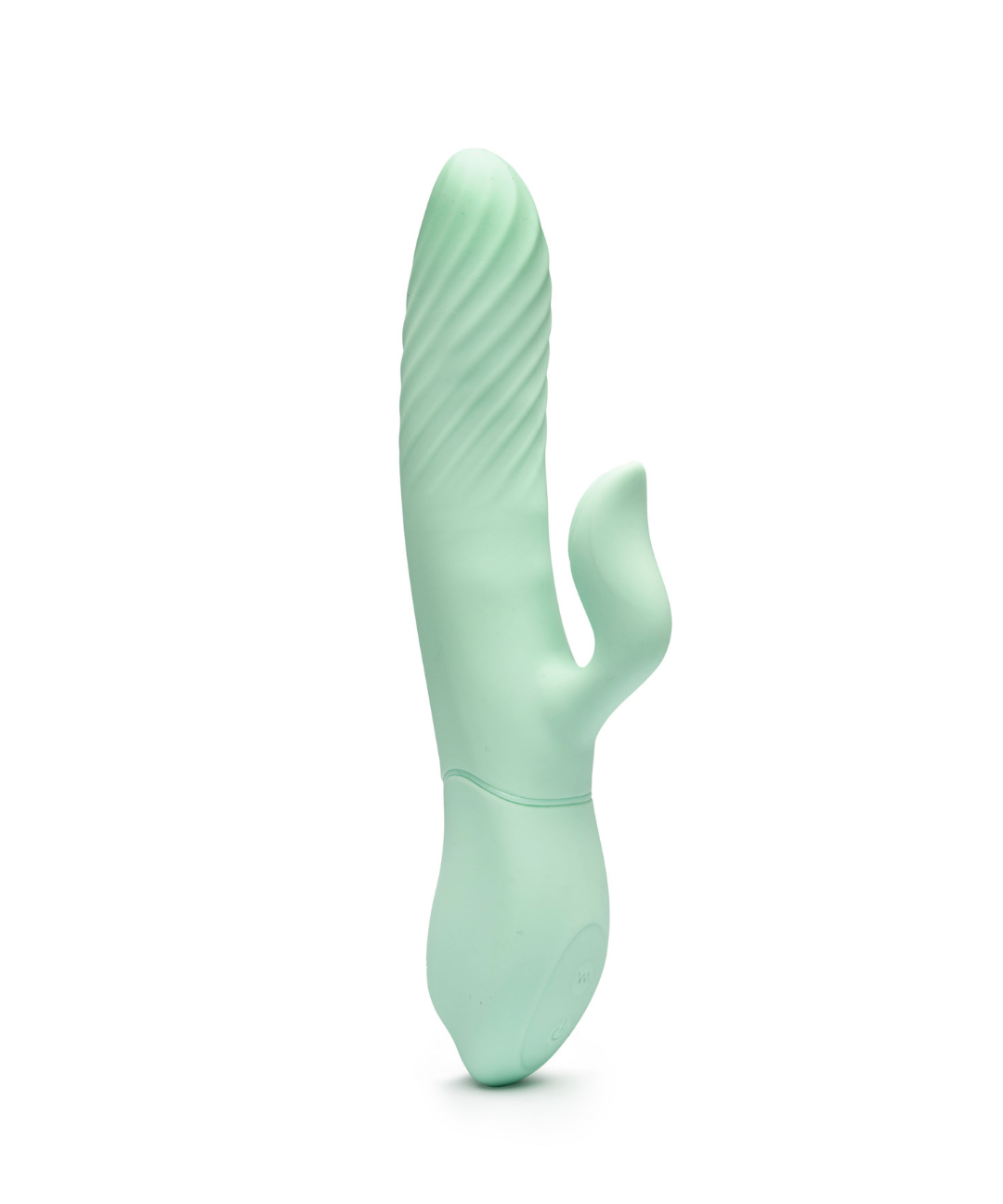The guide is written based on an interview by Nina. Nina has vulvodynia for nine years and has the Instagram profile @livet.med.vulvodyni . Interviewed by @idahoejegaard .
Vulvodynia can be a challenging and painful condition. And people with vulvodynia deserve (more) information, support and guidance. In this guide, with the help of Nina, @livet.med.vulvodyni, we will delve into what vulvodynia is, how to seek help and treatment, how to have sex and more. And then you get Nina's five best tips for what you can do if you are in pain.
What does vulvodynia feel like?
What vulvodynia feels like is very different. For some, vulvodynia feels like fungus, minus the itching. For others, it is a constant nerve pain. It can feel smoldering, hot, burning and stinging. And the pain can be constant or come and go.
"My vulvodynia can feel both like the above: something I experience as discomfort, but also more painful, where parts of the vulva feel like a burn when you stick your finger in. Even if there is nothing to see.
“I have both spontaneous pain; pain that occurs without touch and provoked pain; pain that can occur if I e.g. rides a bike, has to insert a tampon, has penetration sex, wears tight clothes, plays sports, etc.”
What is vulvodynia?
Vulvodynia is a disorder characterized by chronic pain or discomfort in the vulva. Vulvodynia is not a diagnosis, but a description of where the pain is; i.e. in the vulva. Vulva refers to the external genitalia, including the inner and outer labia, the clitoris and the vaginal opening.
When doctors cannot find a specific cause for the pain or discomfort in the vulva area, they call it vulvodynia. This means that the doctor has ruled out that the pain in the vulva is caused by fungus, infections, muscle tension, venereal diseases, etc. as causes of the problems.
The pain can be many, and how vulvodynia feels and which symptoms occur can be completely different from person to person. Vulvodynia is therefore a very broad disorder – There are as many different types of vulvodynia as there are vulva owners who have it.
How does vulvodynia occur?
Exactly how vulvodynia occurs is the big question. We (unfortunately) do not know very much about vulvodynia, so there is uncertainty about what can cause vulvodynia and why some people are affected by it.
Vulvodynia can be caused by several things. According to the research, there are several factors that can play a role. Some of these include inflammation, hormonal changes, as a result of vaginismus (a condition of involuntary muscle contraction in the vagina), trauma, nerve disorders and medications.
“My doctor and I think that my vulvodynia was probably exacerbated by the pill. I stopped taking birth control pills a month and a half ago and I have felt better since then.”
What can you do if you have pain?
Nina gives five pieces of advice;
- Cooling sensations: If you feel bad, it can be nice to try something cooling. For example with a cold shower. It can have a calming effect and help soothe the pain.
- Fresh air for the vulva: Let the vulva get fresh air by avoiding tight clothing, or be naked at home if you can.
- Moist abdomen: Keep the abdomen moist by using a fatty cream or ointment that can retain moisture and protect the skin.
- Take care of yourself: When you have pain in the lower abdomen, it is important to take care of yourself. Just like when you are sick, you are welcome to take a day off or more if necessary. Listen to your body and rest when you need it. Eat the food you want and treat yourself to watching a good movie or series. And if possible; so get some fresh air and go for a walk <3
- Take care of your mental health: pain in the lower abdomen can also affect your mood and psyche. Give yourself space to be frustrated, sad or something else entirely, and seek support from friends, family or a professional if you need it. Remember that it is also okay to need time and space to deal with your psyche.
Can you get rid of vulvodynia?
Yes, you can get rid of vulvodynia. Because it is not entirely known what actually causes the vulvodynia and the pain, this also means that some suddenly become free of the pain again. You can half vulvodynia forever. You can have it for half a year. You can have it for a period of time and you can have it intermittently.
“My own vulvodynia comes from week to week. It can be gone for half a year. But I also had half a year when I felt really bad. Right now as we sit I can't feel my vulvodynia.
For many vulva owners with vulvodynia, the disorder is unfortunately something that follows them for a very long time. I myself have had vulvodynia for nine years.”
What treatment options are there?
It is very different which treatment works when you have vulvodynia. And it can be difficult to treat vulvodynia because you don't (always) know the cause of the disorder.
Many go to the doctor and tell something ala; I think I have a fungus, it's red, it stings, my discharge looks different. And the doctor swabs and takes samples, but the samples come back looking fine. So nothing to see - it looks normal. It is often here that the doctor must establish that it is vulvodynia.
There are many good treatment options in the public sector. It has been found that it is immediately a multidisciplinary form of treatment that works - a form of treatment where vulvodynia is approached from several angles. This means involving several professional groups; that is to say, it may be a physiotherapist, gynaecologist, sexologist, psychologist and so on.
"I myself go to both a psychologist and a sexologist. My sexologist is in private practice, but I have also started a group course at Rigshospitalet in their sexology clinic, for people with abdominal pain. You can go there for up to six months, approximately once a week. It is with a referral from the doctor.
My treatment helps me, but it does not make me pain free. For me - and for most people with vulvodynia - the pain is a condition of life."
How to seek help?
If you suspect that you have vulvodynia, or if you experience pain and discomfort in the vulva, contact your doctor. Tell them you think you have vulvodynia and ask the doctor to check you for anything else it might be.
Unfortunately, it is not unusual for those with vulvodynia to have to see a doctor several times before they are told that it is vulvodynia.
"I have often been told when I lie down on the couch that I look completely normal. My vulvodynia is not very visual. And it's given me trouble getting through the system – it can be hard to get the help you're entitled to when it comes to vulvodynia. Sometimes I have gone to the doctor when it has been worst, so there was something to see. So I was taken seriously.'"
How do you best prepare for a consultation with the doctor?
Many people find it a challenge to go to the doctor, because you either generally find it unpleasant, because you are afraid of not being caught, or because you are afraid that it will hurt.
And although it is the doctor's responsibility to know what vulvodynia is, it is really good to have familiarized yourself with it. It gives a better opportunity to have a conversation with the doctor, to understand one's own problem and to understand any journal notes. It is a really good starting point to know your own anatomy, and a little about the disorder you may have. suspect to fail. But it is not your responsibility to know everything about your disorder.
Already from home, you can think about where you stand and what you would like to talk about. And it is always a good idea if you feel able to be transparent with your doctor and tell: where you stand and what the doctor can do to make it a good experience.
"I myself have a bit of a hard time going to the doctor, and something that helps me is that in the days leading up to going to the doctor, I write down the questions I want answered. And then I go into the consultation with that list, crossing off along the way. In this way, I ensure that I get all my questions asked and all my concerns addressed, that I take care of myself and that I come home with something useful.”
What do you do if the doctor does not recognize your pain experience?
The thought of a speculum (the small duckbill) inserted can be scary, especially if you have abdominal pain. And for some, this kind of intervention is practically impossible or associated with extreme pain. Remember, it's your body and you set the limits.
If you don't feel understood, or if your boundaries are crossed in some way, you are with the wrong doctor. With vulvodynia, you are already in a difficult situation, and there is no reason to put yourself through more discomfort than necessary.
There are doctors who want to deny that there is such a thing as vulvodynia – it comes from ignorance. And if you end up with such a doctor, you should change doctors. The same applies to gynecologists. If they don't acknowledge your pain experience, seek help elsewhere. There are doctors and professionals who will help you <3
How does vulvodynia affect you in everyday life?
Vulvodynia can affect you in several parts of your life; physically, sexually, emotionally and socially. Because in addition to bothersome pain, vulvodynia can be the cause of appointments that have to be canceled, a challenging sex life and an eternal search to understand a disorder that is in many ways incomprehensible and inexplicable.
“I am disabled at many points in my life because of my vulvodynia. Walking around in pain all the time affects my mood and generally how I feel mentally. Vulvodynia affects me psychologically, and my mental well-being also affects my vulvodynia.”
“Vulvodynia affects my social life and is a constant reminder of the pain. It is a challenge to enjoy yourself and have fun while you are in pain. Perhaps especially because there is still a lot of taboo around talking about the vulva, and it is therefore limited who I can talk to about it. It can be a reason to feel really alone and frustrated.
Fortunately, I have many lovely people around me. Especially my family and my friends.
I've started talking about my vulvodynia and it's been a huge relief for me to open up.”
Can you have sex when you have vulvodynia?
You can easily have sex when you have vulvodynia - both with yourself and with your partner(s). Sex is a broad term, and sex, like vulvodynia, is as diverse as there are people who have it.
That being said, sex often involves friction, or at least touch, and that can be impossible for some. And the really big dilemma for many is the issue of penetration sex. Because if you can't do that, what can you do? The answer is that you can do a lot of things. You can have lots of sex that doesn't involve penetration.
Sex shouldn't hurt. And it should not hurt, for the benefit of your partner's pleasure. You have to listen to your body and stop if something hurts you. If you generally experience pain during sex, which is not caused on purpose, it is a perfectly legitimate reason to contact your doctor.
And if you have sex with a partner, you should have a conversation with your partner about the sex you have. Set the boundaries you need to set. It pretty much applies whether you have vulvodynia or not.
"I think that one of the reasons why more people have intercourse despite the pain - just as I myself have done - is that there is (also) a problematic idea in the healthcare system about what sex is and can be; that sex equals penetration. Several, including myself, have been offered a numbing cream for the vulva. So you can go home and have sex with (read: be penetrated by) your partner. It's very dystopian, but sadly true.
When I have been handed that cream, I have neatly thrown it back, but I know that people accept it because, of course, they trust professional staff. It helps to create a very unhealthy notion of what one should be able to do when it comes to sex.”
Here it is of course important to mention that the cream can also be used for the treatment of spontaneous pain. And in that case, it's a completely different conversation.
How can you have sex when penetration hurts or you experience that sex is associated with pain?
First of all, it is important to take a closer look at your own expectations for sex. Try to think more nuanced and open about what sex actually entails. Be aware of where your ideas about sex come from and what you can do to include yourself in that narrative.
When you have vulvodynia, it can be really difficult, or impossible, to have penetrative sex. Remember that even if there is no penetration involved, you can still enjoy intimacy and have naughty and exciting sex. And if you have sex with a partner, practice talking openly about your needs and boundaries together.
Another good idea might be to create two approaches to your abdomen.
One is a focus on the disease and the road to recovery. It is important to take the time to care for and treat your vulvodynia, follow medical recommendations and get professional help if needed.
The second dimension is the sexual and sensual side. You are still a sexual being, you have the right to pleasure and you have the right to express yourself sexually, even if you have vulvodynia. Listen to your body, find alternative ways of achieving pleasure and intimacy, and be open to exploring different forms of sexual stimulation and intimacy that do not involve pain.
"I think that many of us who have these abdominal problems may need to create our sexuality anew, because our abdomen has become something that contains the key words; illness, wrongness, doctors, medicine, surgical interventions and everything else that is not immediately associated with sex and sexuality. You can become very distant from your sexuality and your abdomen when you have e.g. vulvodynia
I myself have had to find my way back to what it is that I really like, because for a very long time sex and intimacy have taken place on other people's terms, and their idea of what intimacy and sex are.”
Can vulvodynia be contagious?
No. Vulvodynia is not contagious and it is not dangerous. The 'dangerous' thing is if you don't rule out other possible serious diagnoses/diseases, and walk around with them without knowing it.
What can you do yourself to achieve more enjoyment?
Specifically; look at yourself in the mirror, get to know your vulva better. Where does it hurt to be touched? where does it not hurt? where does it feel nice? What does penetration feel like? What does stimulation of the clitoris feel like? What about anal sex?
If you do it yourself and at your own pace, having sex can be a completely new experience. In this way, you can take control yourself and create your own safe space, where you do not have to communicate with anyone, other than with your body and your abdomen.
“It may well be that there is something you cannot do today that you can do another day.
Remove expectations and be curious. And remember lube. Thick thick thick thick lube.”
Nina is 24 years old and studies nutrition and health.
